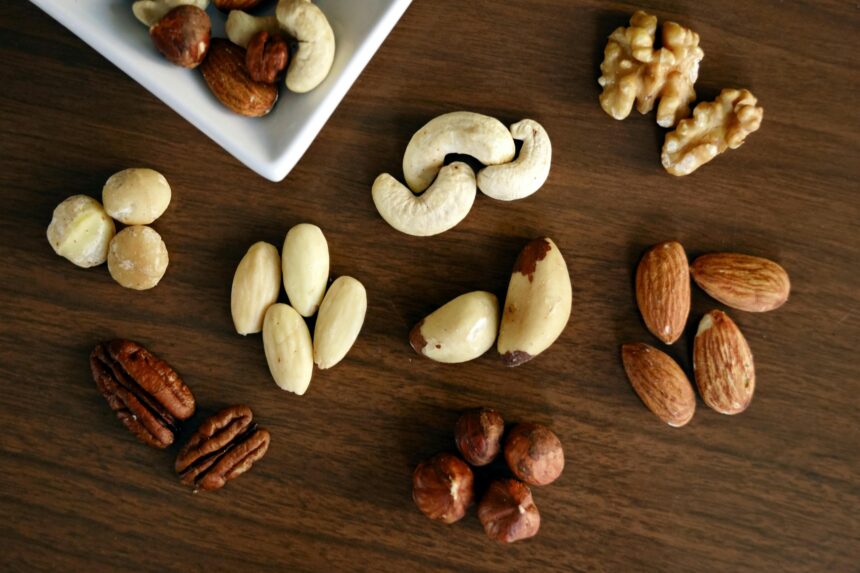Insulin sensitivity influences how your body processes glucose. Insulin resistance occurs when your body becomes less receptive to insulin, which can result in high blood sugar levels, weight gain, chronic inflammation, and, eventually, type 2 diabetes. But there’s good news: certain meals can improve insulin sensitivity, allowing your body to respond to insulin more effectively, stabilize energy levels, and lower disease risk.
This article delves into science-backed foods that promote good insulin function, how they operate in the body, and easy ways to incorporate them into your everyday diet.
Understanding Insulin Sensitivity
The pancreas produces insulin, which helps transfer glucose from the bloodstream into cells, where it is used for energy. When your cells grow resistant to insulin, the pancreas compensates by releasing more, resulting in elevated insulin and glucose levels in blood. This creates the conditions for metabolic syndrome, weight gain, persistent tiredness, and, eventually, type 2 diabetes.
Improving insulin sensitivity means your body needs less insulin to regulate blood sugar levels, which minimizes pressure on your pancreas and systemic inflammation. While exercise, sleep, and stress management all help to improve insulin sensitivity, your diet is one of the most potent levers you can use.
MUST READ; Low Sodium Diets and the DASH Diet: Powerful Tools for a Healthier Heart
Top 7 Foods That Improve Insulin Sensitivity
These foods are scientifically shown to improve insulin sensitivity and blood sugar stability.
1. Leafy Greens are Nature’s Anti-inflammatory Base
Dark leafy greens such as spinach, kale, Swiss chard, and arugula are high in magnesium, polyphenols, and antioxidants, which aid in cellular insulin response. Magnesium, in particular, influences insulin signalling pathways, and low magnesium levels have been associated to increased insulin resistance. These greens are also low in carbs, making them great for glycaemic control. A salad with spinach, olive oil, and lemon juice, or a green smoothie, are great ways to obtain your daily amount.
2. Berries: Blood Sugar-Friendly Sweetness
Berries, particularly blueberries, raspberries, and strawberries, contain significant levels of anthocyanins, which have been demonstrated to improve insulin sensitivity and reduce inflammation. Research has shown that eating berries on a regular basis helps prevent post-meal blood sugar increases and improve insulin responsiveness. Their natural sweetness makes them a great substitute for sugary treats, yet they also include fiber and antioxidants that inhibit digestion and glucose absorption.
3. Fatty Fish: Omega-3s for Metabolism
Wild salmon, sardines, mackerel, and other fatty fish include omega-3 fatty acids, which help to prevent chronic inflammation and maintain insulin receptor health. Chronic low-grade inflammation is a major contributor to insulin resistance, and omega-3s can help reduce this inflammatory response. Aside from their fatty acid profile, these fish are abundant in protein, which delays carbohydrate breakdown and decreases insulin demand.
4. Avocados: Beneficial Fats for Blood Sugar Management
Avocados contain monounsaturated fats, fiber, and potassium, all of which promote metabolic flexibility and minimize insulin resistance. Avocado fats aid to delay digestion and avoid blood sugar rises after meals. Their fiber also supports good gut bacteria, which indirectly enhances insulin signalling. Regular avocado consumption has been linked to decreased insulin levels and improved glucose management, particularly in overweight people.
5. Beans and lentils: Fiber-Rich Plant Proteins
Legumes such as black beans, lentils, chickpeas, and kidney beans are nutritional powerhouses that can improve insulin sensitivity. They are high in soluble fiber, which delays glucose absorption and lowers the glycaemic index of meals. Their plant-based proteins also help to stabilize blood sugar levels and keep you satisfied. Over time, a legume-rich diet helps control insulin production and lowers the chance of developing insulin resistance-related illnesses.
6. Cinnamon is a Sweet Spice with Powerful Effects
Cinnamon includes chemicals that imitate insulin and promote glucose transfer into cells. Cinnamon use of ½ to 1 teaspoon per day has been shown to significantly lower fasting blood sugar and increase insulin sensitivity. Its polyphenols increase insulin receptor activation and promote glucose metabolism. Whether sprinkled over porridge, blended into smoothies, or added to herbal beverages, cinnamon provides a natural, tasty boost to metabolic health.
7. Nuts and Seeds Are Nutrient-Dense Insulin Allies
Almonds, walnuts, flaxseeds, chia seeds, and pumpkin seeds provide a concentrated source of healthy fats, magnesium, fiber, and plant-based protein, all of which help to enhance insulin response. These meals regulate the release of glucose into the bloodstream, minimize oxidative stress, and have anti-inflammatory properties. A handful of raw nuts as a snack, or seeds sprinkled on salads or yogurt, can help maintain metabolic equilibrium.
Final Thoughts
The path to improving insulin sensitivity does not involve severe diets or short-term gimmicks; rather, it is founded on consistent, nutritious dietary choices. Each meal provides an opportunity to strengthen your body’s natural insulin response and lower your risk of metabolic disease. Fiber-rich veggies, anti-inflammatory fats, antioxidant-rich fruits, and nutrient-dense proteins will help to balance your blood sugar while also improving your energy, mood, and long-term health.


